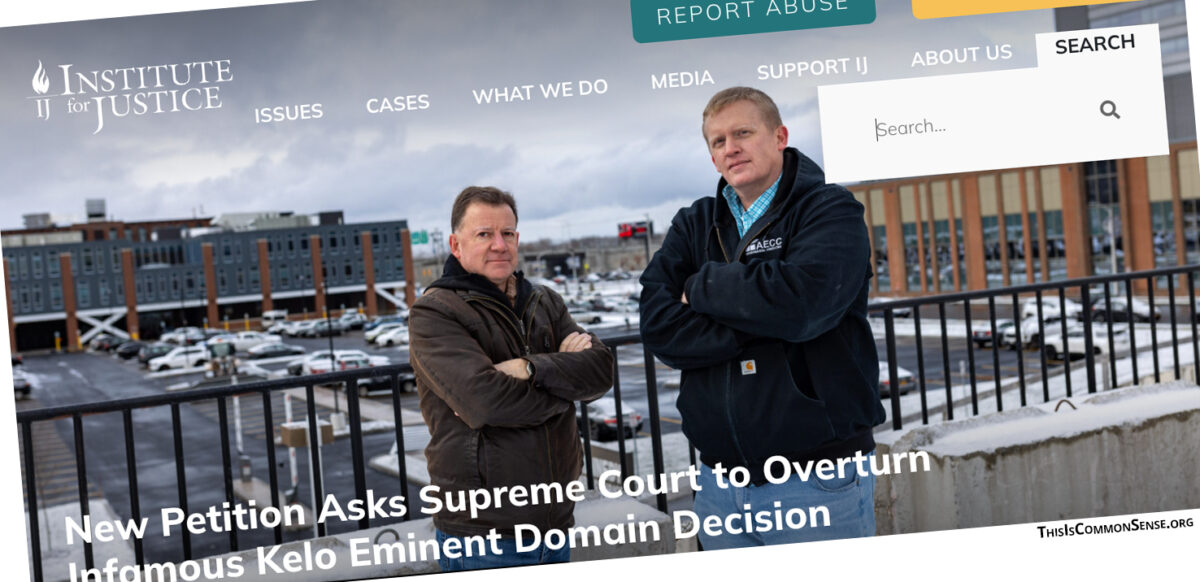New Year’s Resolution for the U.S. Supreme Court: follow the Constitution.
That’s not what happened in 2005 when, by a 5 – 4 majority, the court determined that governments in this country could enjoy an almost unlimited power of eminent domain. The mere prospect of a more taxable commercial entity or mere desire to appease some constituency would suffice to legally justify violating the rights of innocent property owners.
This Kelo v. New London decision was applauded by abusers of power, derided by defenders of property rights. The latter leapt into action, fighting for legislation in 47 states to give property owners firmer protection.
One exception was New York State, where the town of Utica recently used the power of eminent domain against Bryan Bowers and Mike Licata.
These business partners had established a cardiology service to compete with that of CNY Cardiology group, right next door. CNY begged the city to let it turn the Bowers Development building into a parking lot. We need a parking lot there, said CNY; right where our lower-priced competitor is sitting.
The city said okay.
Enough, says Institute for Justice, which is representing Bowers Development and all of us by petitioning the U.S. Supreme Court to revisit Kelo.
IJ President Scott Bullock believes that it’s “high time for the Supreme Court itself to … remove this blot on its jurisprudence and restore constitutional guardrails to the use of eminent domain.”
Please resolve to give America a favorable outcome, justices.
This is Common Sense. I’m Paul Jacob.
See all recent commentary
(simplified and organized)
See recent popular posts
